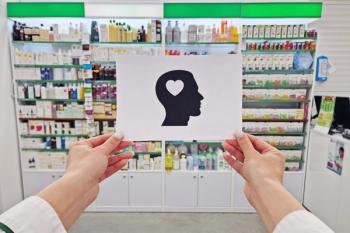
After DOJ Indictment, CDC Urges Caution Around ADHD Medications
The CDC released an alert encouraging pharmacists and providers to counsel patients around the harms of illegal stimulant medications.
More challenges may be in store for adults seeking stimulant medications to treat their ADHD.
The Department of Justice has announced the indictment of 2 individuals associated with a California-based digital health company for alleged participation in an Adderall distribution scheme, conspiracy to commit healthcare fraud, and obstruction of justice.1
Done Global founder and CEO Ruthia He and Done Health clinical president David Brody were arrested in California on Thursday, June 13, 2024. This is the agency’s first criminal drug distribution prosecution related to a digital health company distributing controlled substances via telemedicine.
“As alleged, these defendants exploited the COVID-19 pandemic to develop and carry out a $100 million scheme to defraud taxpayers and provide easy access to Adderall and other stimulants for no legitimate medical purpose,” said Attorney General Merrick B. Garland, in a Department of Justice news release.1
READ MORE:
Court documents for the indictment allege that the defendants, and those they conspired with, provisioned over 40 million pills—both Adderall and other stimulants—to generate $100 million in revenue. He and Brody solicited subscribers “by targeting drug seekers and spending tens of millions of dollars on deceptive advertisements on social media networks,” the DOJ release noted.1 “They also allegedly intentionally structured the Done platform to facilitate access to
An auto-refill function was also allegedly put into place whereby subscribers could elect to have an auto-generated message requesting a refill each month, a structure the company implemented discourage follow up medical care and refusing to pay prescribers for any visits or care administered after the initial consultation.
In response to the arrests, the CDC issued a Health Alert Network Advisory2 to inform public health officials, clinicians, affected patients, families, and caregivers about “potential disrupted access to care among individuals taking prescription stimulant medications and possible increased risks for injury and overdose.”
“Patients who rely on prescription stimulant medications to treat their ADHD and have been using this or other similar subscription-based telehealth platforms could experience disruption to their treatment and disrupted access to care.”
WATCH NOW:
The agency estimated that as many as 30,000 to 50,000 adults across the country could be affected.
An additional complication is the ongoing prescription drug shortage, in which the active ingredients of multiple stimulant medications—including Adderall (mixed amphetamine salts), Vyvanse (
In light of the national drug overdose crisis and “threats associated with the illegal drug market,” such as counterfeit pills adulterated with fentanyl, “individuals struggling to access prescription stimulant medications are urged to avoid using medication obtained from anyone other than a licensed clinician and licensed pharmacy.” According to the Drug Enforcement Administration, 7 of every 10 counterfeit pills sized from the illegal drug market contains a “lethal dose of illegally made fentanyl.”
The CDC also noted growing concerns around the adverse outcomes associated with untreated ADHD, including social and emotional impairment, increased risk of drug or alcohol use disorder, unintentional injury, and suicide.
Estimates suggest that ADHD affects approximately 9.8% of children and 4.4% of adults in the US. Stimulant prescriptions have increased since 2016, in particular, during the COVID-19 pandemic. Although stimulants are frequently used in a safe and appropriate manner, their misuse, particularly among young adults, represents a growing public health concern. Rates of overdose deaths involving stimulants, including cocaine and psychostimulants with abuse potential, “have increased steadily since 2014.”2
The CDC offered several recommendations for pharmacists and pharmacies, summarized below.2 Pharmacists should:
- Avoid stigmatizing patients affected by a disruption in care;
- Acknowledge that these actions should not result in universal refusal to fill prescriptions from telehealth providers;
- Remember that Schedule II through Schedule IV controlled substances can be prescribed via telehealth, without an in-person visit, until December 31, 2024;
- Inform patients that they may have difficulty filling a prescription due to medication shortages;
- Share resources on finding a provider who can help identify alternative treatment options, if needed;
- Counsel patients on the risks of obtaining medications from any entity other than a licensed pharmacist due to the prevalence of counterfeit pills; and
- In states with a standing order or protocol for naloxone, consider dispensing the product or informing patients where they can purchase it over the counter.
If a pharmacy does not have a specific prescription medication in stock and available to dispense, pharmacists may electronically transfer these Schedule II prescriptions.
As of mid-May, the FDA “expects additional supply will be returning in the coming months,” according to a report from NBC News.4 “The public should rest assured the FDA is working closely with numerous manufacturers and others in the supply chain to understand, mitigate, and prevent or reduce the impact of intermittent or reduced availability of certain products,” an agency spokesperson said.
Read More:
References
Founder/CEO and clinical president of digital health company arrested for $100M Adderall distribution and health care fraud scheme. News release. US Department of Justice. June 13, 2024. Accessed June 14, 2024.
https://www.justice.gov/opa/pr/founderceo-and-clinical-president-digital-health-company-arrested-100m-adderall-distribution Disrupted access to prescription stimulant medications could increase risk of injury and overdose. CDC Health Alert Network. June 13, 2024. Accessed June 14, 2024.
https://emergency.cdc.gov/han/2024/han00510.asp FDA drug shortages. FDA. Accessed June 14, 2024.
https://www.accessdata.fda.gov/scripts/drugshortages/default.cfm Lovelace Jr B. ADHD drug shortage shows signs of letting up, but some patients still struggle. NBC News. May 19, 2024. Accessed June 14, 2024.
https://www.nbcnews.com/health/health-news/adhd-drug-shortages-fda-easing-affecting-patients-rcna152570
Newsletter
Pharmacy practice is always changing. Stay ahead of the curve with the Drug Topics newsletter and get the latest drug information, industry trends, and patient care tips.























